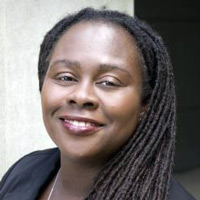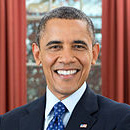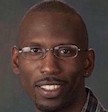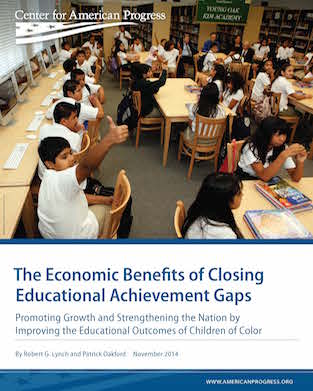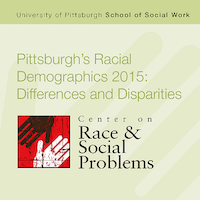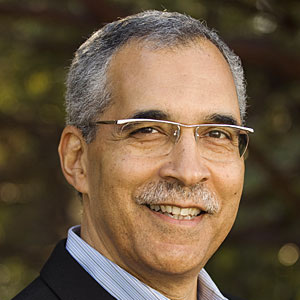Tracking the Educational Progress of 21st-Century African American Students
Some 19.8 percent of the African American high school sophomores in 2002 had gone on to earn at least a bachelor's degree over the next decade. This is less than half the rate for Whites.
An Examination of Faculty Diversity at the University of Houston
The University of Houston has one of the more diverse student bodies of any college or university in the nation. But, the racial and ethnic makeup of its faculty does not approach that of its student body.
Racial Differences in Union Membership and Wages
In 2013, there were 2,081,000 African American union members, some 13.6 percent of all African American workers. For union members, Blacks earned 80.9 percent of the wages earned by Whites.
The Large Racial Gap in Advanced Placement Examination Scores
Participation of African American students in Advanced Placement programs at U.S. high schools has soared in recent years. But a huge racial gap persists in performance on AP examinations.
The Growing Racial Gap in Home Ownership
Many American families use the equity in their home to finance the higher education of their children or grandchildren. This source of higher education funding is less available to African Americans.
Racial Differences in Higher Education Spending Have Little to Do With Race
In comparing Black and White families of similar income, wealth, educational background etc., the Bureau of Labor Statistics found there were almost no differences in the amounts spent on higher education.
Will the Federal Government Challenge Merit-Based College Scholarship Programs?
Many scholarship programs nationwide have minimum test score requirements that, while not discriminatory on their face, have the effect of disproportionately excluding large percentages of Black and other minority students.
Racial Disparity in Misdiagnoses of Stroke Patients
A new study finds that emergency room physicians tended to misdiagnose stroke symptoms among African American patients more often than for White patients.
Two Scholars Take on the Mismatch Theory
A new study refutes the theory that affirmative action is responsible for lowering graduation rates and post-graduation success for Black students admitted to universities with race-sensitive admissions policies.
A Call to President Obama to Include Girls of Color in “My Brother’s Keeper”...
In an open letter to President Obama, a group of 1,000 women of color state that "the crisis facing young boys of color should not come at the expense of girls who live in the same households, suffer in the same schools, and endure the same struggles."
Ten Universities to Tackle the Problem of K-12 Teacher Diversity
The American Association of Colleges for Teacher Education has selected 10 universities to participate in a program with the goal of increasing the number of Black and other minority men who teach in the nation's public schools. Only 2 percent of public school teachers are Black males.
Black Degree Attainments in Engineering: Long Way to Go to Reach Parity
In 2005, Black earned 5.3 percent of all bachelor's degree awarded in engineering. In 2012, Blacks earned only 4.2 percent of all bachelor's degrees awarded in the discipline. Blacks did slightly better in graduate degrees in engineering.
University of Utah Project to Provide Prenatal Care to African Refugees
Aster Tecle, an assistant professor of social work, will co-lead The Perinatal Community Health Workers to Support African Refugee Women and Families that will train other African women to provide appropriate information, assistance, and prenatal care.
Academic Study Finds a Large Racial Gap in the Transition Out of Homeownership
Researchers at Rice University in Houston and Cornell University in Ithaca, New York, found that since the 1990s, African American homebuyers were 45 percent more likely than Whites to transition out of homeownership.
Maintaining Diversity in the Admissions Office Will Be a Challenge
Blacks are underrepresented in the top management levels of admissions offices at U.S. colleges and universities. And a new survey finds that a large percentage of current Black admissions officers want to find jobs in other fields.
A Report Card on Racial Diversity in College Sports
The Institute for Diversity and Ethics in Sport at the University of Central Florida reports that the overall grade for racial hiring practices at colleges and universities rose from 81 points in 2012 to 82.3 points in 2013.
University of Cincinnati Sociologist Finds Racial Wage Gap Remains for Highly Educated Workers
The study followed a large, multiracial group of eighth graders in 1988 through the year 2000 when most of the participants were 25 years old. When educational and other factors were the same, a racial wage gap of more than $5,700 still existed.
New ACT Test Results Show Very Few Black Students Are Prepared for College
According to the 2014 scores on the ACT college entrance examination, only one in 20 Black students were rated college-ready in all four areas: English, reading, mathematics and science. Whites were nearly seven times as likely as Blacks to be college ready in all four areas.
Survey Shows Black Faculty at the University of Missouri Are Less Satisfied Than Their...
Only 57 percent of faculty of color said that they were "very satisfied" or "satisfied" with the jobs. Nearly one fifth of all faculty of color said they were "dissatisfied" or "very dissatisfied."
The Large and Persisting Racial Income Gap Impacts College Affordability
In 2013, the median income level for Black households was 59 percent of the median income for non-Hispanic White households. With only minor fluctuations, the racial gap in median income has remained virtually unchanged for the past 40 years.
Survey Finds Large Racial Differences in Student Loan Debt
According to the Gallup survey, only 22 percent of Black students who graduated college in the 2000-to-2014 period did so without any student loan debt. Half of all Black students who earned their degree in the period had student loan debt of more than $25,000.
The Persisting Racial Gap in College Student Graduation Rates
At the nation's largest universities, the Black student graduation rate of 45 percent is 21 percentage points lower than the graduation rate for White students. This gap has existed for decades and shows no sign of improvement.
University of Cincinnati Aims to Increase the Diversity of Its Faculty
The provost’s office has allocated $1,170,000 to the faculty diversification effort during the current fiscal year. And the Office of the President has allocated $800,000 over the next three years for the effort.
Major Progress in Black Student Graduation Rates at Top-Ranked Colleges and Universities
A decade ago, only five of the nation's highest-ranked colleges and universities had Black graduation rates of 90 percent or more, compared to 15 today. In addition, many of these top schools have narrowed the racial graduation rate gap.
The Economic Price Tag of Racial Inequality
A new study by the Center for American Progress estimates that if educational gaps were closed and incomes rose to coincide with the educational gains, the gross domestic product would grow by $2.3 trillion by the year 2050.
New Study Examines Racial Disparity in Maternal Mortality
The researchers stated that factors such as gestational age, fetal survival rate, duration of hospital stay, cesarean delivery rate, and lack of prenatal care contributed to the higher incidence of maternal mortality among Black mothers.
University Study Finds Link Between Sedentary Work and Obesity for Black Women
The research by scientists at the Washington University School of Medicine in St. Louis found no correlation for sedentary work and obesity in men and a far smaller correlation for White women.
Miami Heat’s Dwayne Wade Funds Literacy Program at Marquette University
Dwayne Wade, who played his college basketball at Marquette, has pledged to donate $195,000 over three years through his Wade's World Foundation to support a program to reduce the racial literacy gap among inner-city children.
The Racial Gap in Doctoral Degree Awards
In 2013, African Americans earned 6.4 percent of all doctoral degrees awarded to U.S. students. Therefore, African Americans earned about one half the number of doctorates that would be the case if racial parity with the Black population prevailed.
Academic Disciplines Where African Americans Earned No Doctoral Degrees in 2013
According to the National Science Foundation, there were 18 academic fields where none of the doctorates awarded in 2013 went to an African American. More than 1,800 doctorates were awarded in these fields.
Ranking the Top Law Schools by Their Percentage of Black Students
At none of the 15 highest-ranked law schools do Black enrollments reach 9 percent. Harvard Law School ranks first with Black enrollments of 8.7 percent.
University Study Examines Racial Disparities in the Pittsburgh Area
The Center on Race and Social Problems at the School of Social Work of the University of Pittsburgh has issued a new report on racial disparities in the metropolitan region surrounding the university.
How the University of Maryland Has Boosted Black Male Retention and Graduation Rates
For Black male first-year students in the fall of 2013 at the University of Maryland at College Park who had a 2.3 grade point average or better, 100 percent returned for the spring semester.
Research Uncovers Racial Differences in Faculty Salaries at Berkeley
While the percentage differences in faculty pay are small, the report states that "the average salary difference between White men and minority faculty members is equivalent to about 1 to 2 years of career experience.”
Studying the Racial Gap in Infant Mortality Rates
The authors compared U.S. infant mortality rates to those in two European countries. They found that the reason infant mortality is lower in Europe is simply because these countries take better care of their low-income citizens than is the case in the United States.
Report Finds Black Students Like Mathematics More Than White Students
A new report from the U.S. Department of Educations shows that Black men and Black women liked the study of mathematics in high school more so than their White peers.







